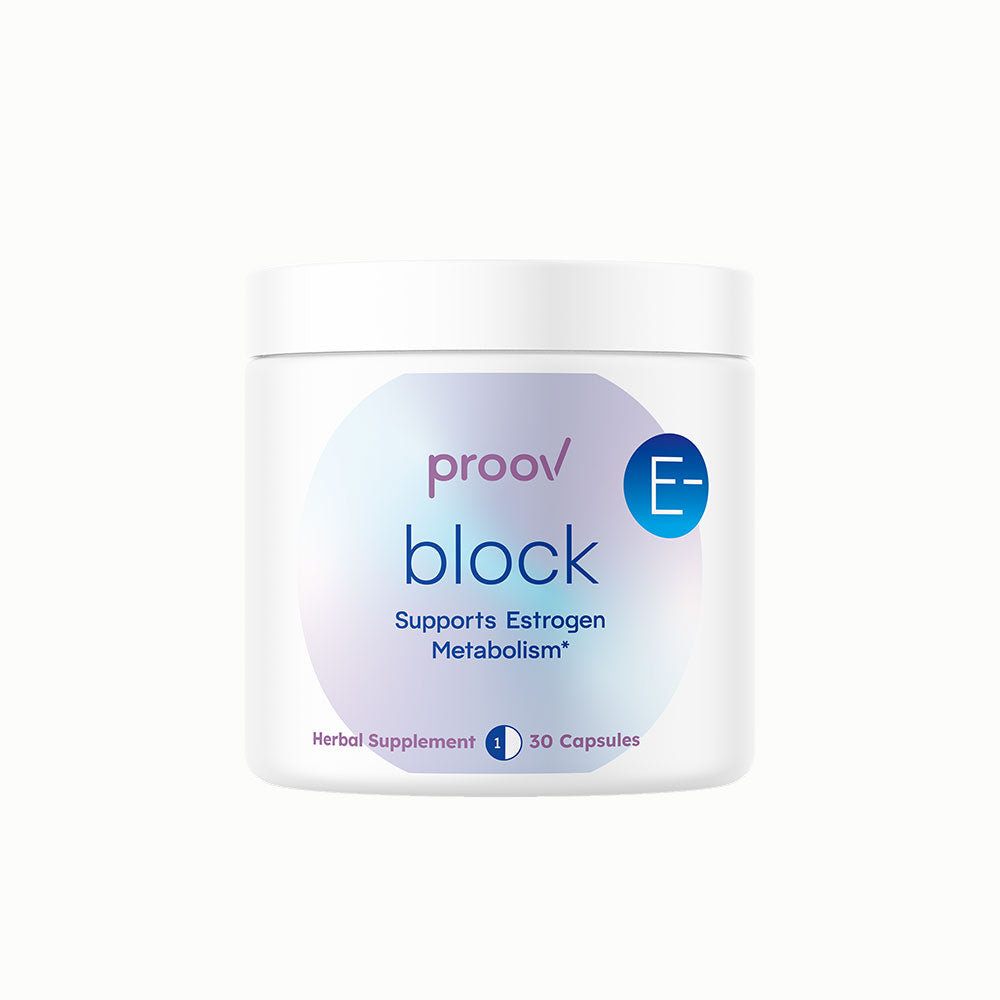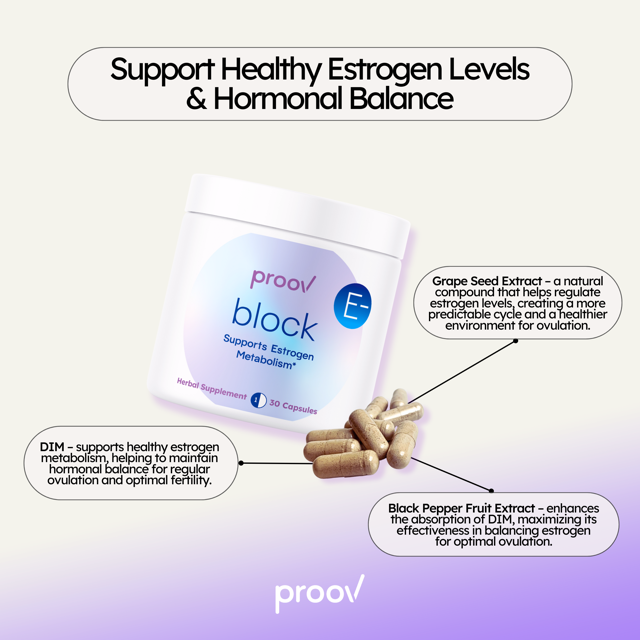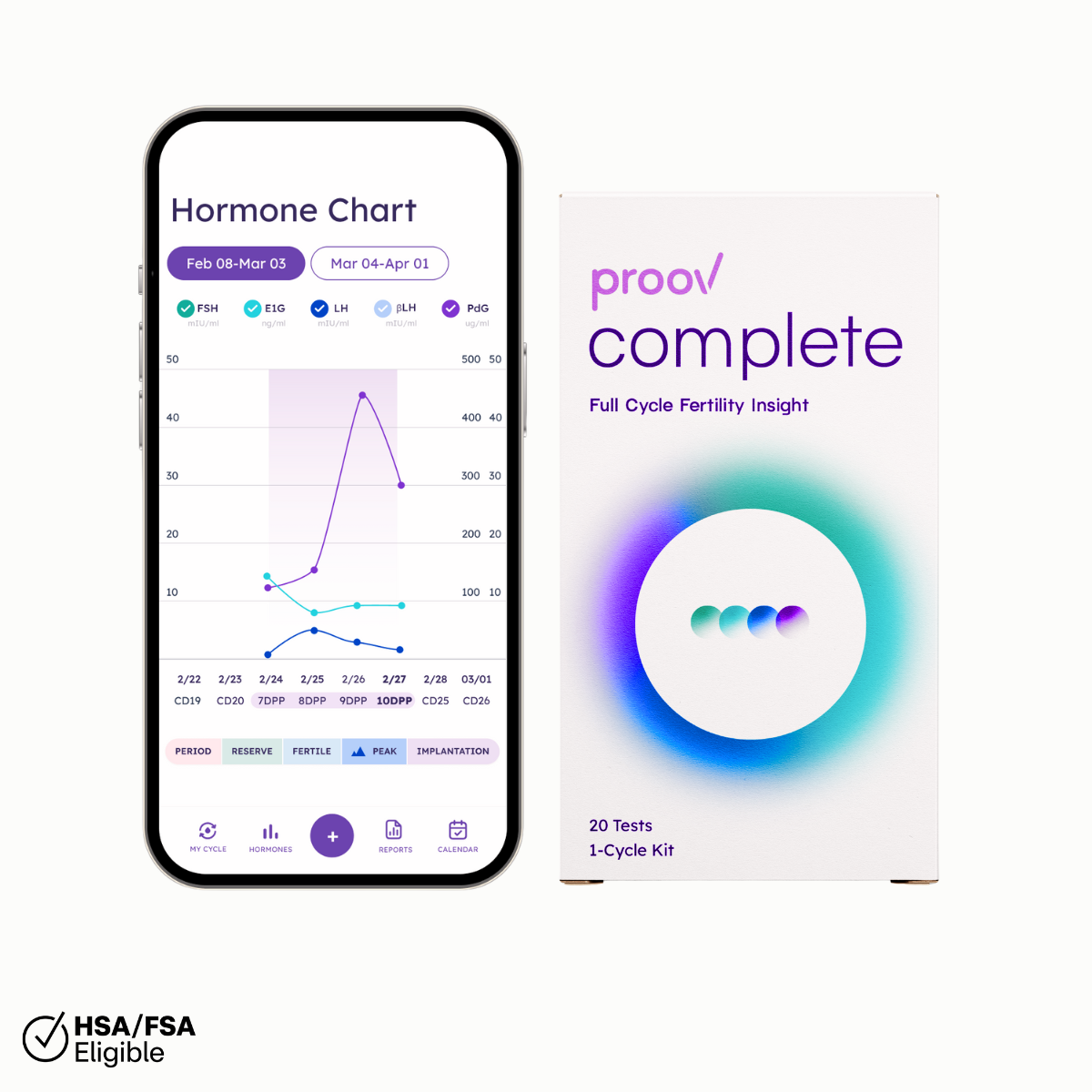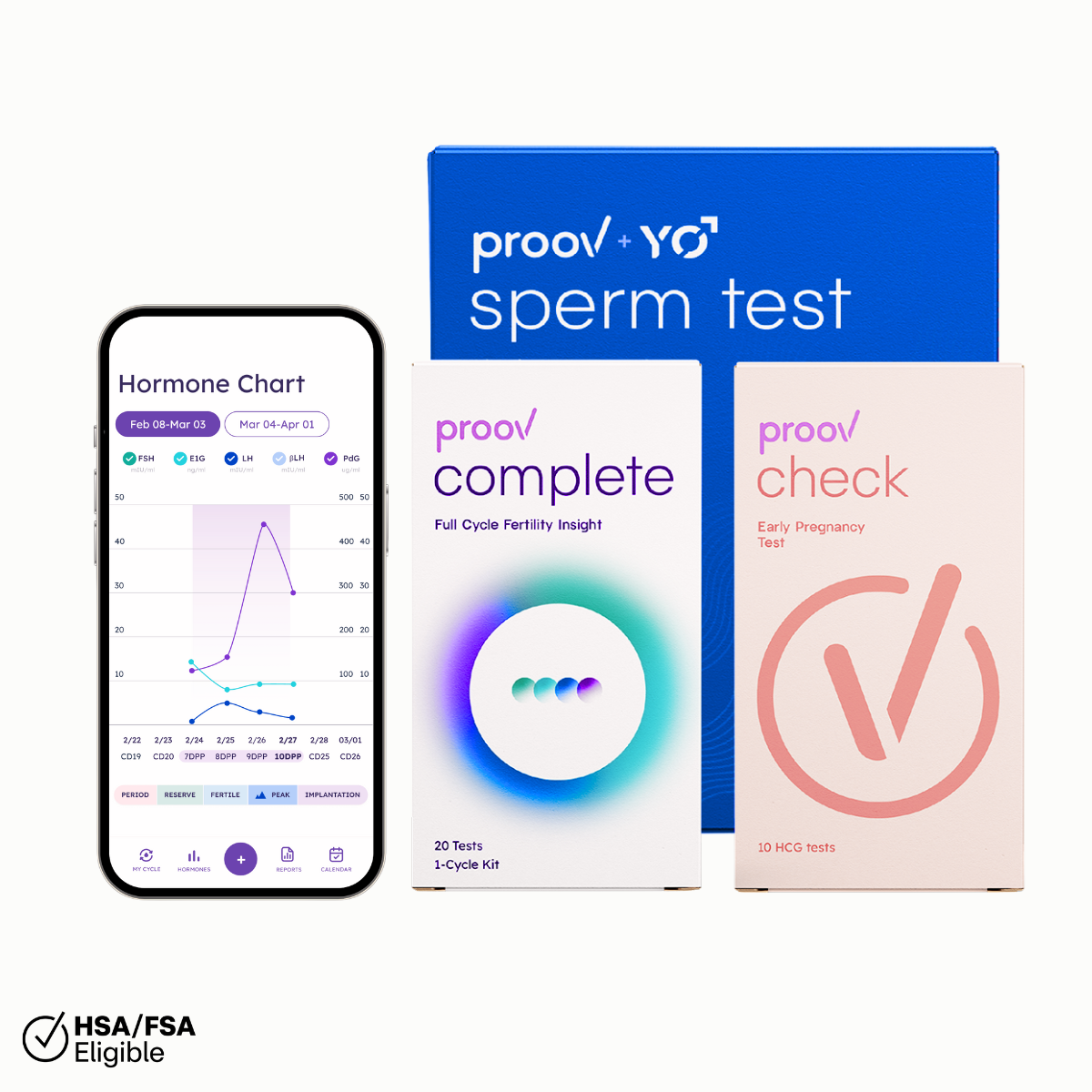Perimenopause is a transitional period that lasts anywhere from two to eight years (with four years being the average) leading up to menopause—the end of a woman’s reproductive years. It is marked by fluctuating hormones and tough symptoms like hot flashes and night sweats, mood swings, insomnia, skin changes, and more.
One of the most common and frustrating symptoms many women experience during perimenopause is weight gain, particularly around the midsection. If you are noticing the numbers on the scale going up or struggling to fit into your favorite dresses, you are not alone. Weight gain during perimenopause can feel inevitable, but understanding why it happens can empower you to take control.
In this article, we'll explore the reasons weight gain happens during perimenopause, why it targets the belly, and what you can do to manage it.
Why Perimenopause Causes Weight Gain
Typically starting around age 40 (though it can happen earlier), perimenopause is that phase in every woman’s journey that’s characterized by period changes, including longer or shorter menstrual cycles, irregular periods, and heavy bleeding. Along with these shifts, many of us experience uncomfortable symptoms like brain fog, vaginal dryness, bladder problems, low libido, and weight gain—all driven by hormonal changes.
During perimenopause, the number of eggs in your ovaries is significantly lower, causing estrogen and progesterone levels to drop and fluctuate. Estrogen, in particular, plays an important role in regulating metabolism (i.e., how your body uses energy) and body fat distribution. It functions by interacting with estrogen receptors in adipose (fat) tissues throughout the body.
When estrogen levels decline, the rate of fat gain often doubles, and it tends to accumulate around the belly instead of the hips, glutes, and thighs. This shift in fat storage is one of the main reasons women gain weight around the midsection during perimenopause.
But estrogen isn’t the only culprit. Other hormones, like progesterone and testosterone, also waver during perimenopause, impacting everything from mood to appetite. Lower levels of progesterone can lead to water retention, causing bloating and a heavier feeling.
Another factor at play is increased insulin resistance, which often occurs as women approach menopause due to increased levels of cortisol (the stress hormone), poor sleep, and reduced estrogen. Insulin is a hormone that regulates blood sugar, and when its effectiveness diminishes, the body tends to hold on to more fat, again around the belly area. Additionally, leptin, the hormone that tells you to stop eating, can become less effective due to insulin resistance, causing intense cravings and overeating.
The Midsection: Why Belly Fat Increases During Perimenopause
The combination of hormonal changes and added stress from symptoms like hot flashes makes belly fat gain a common problem for women during perimenopause. Moreover, a slowdown in metabolism, which naturally occurs with age, means that you are burning fewer calories at rest, making it easier to gain weight even if your diet hasn’t changed.
The Risks of Excess Belly Fat
Excess belly fat is an independent risk factor for heart disease, high blood pressure, diabetes, metabolic syndrome, and certain cancers. Therefore, addressing belly fat isn’t just about looking good; it’s about maintaining long-term health and well-being. By taking steps to manage your weight during perimenopause, you’re not only improving your appearance but also reducing your risk of developing serious health conditions.
Lifestyle Factors That Contribute to Weight Gain in Perimenopause
In addition to the hormonal shifts that happen during perimenopause, research has identified several lifestyle factors that contribute to weight gain and belly fat, including reduced physical activity, westernized dietary patterns (i.e., a diet high in sugar and processed foods), and recurrent emotional eating episodes associated with psychological stress.
Sleep disturbances, which are common during perimenopause due to symptoms like insomnia, night sweats, and bladder problems, also contribute to midsection weight gain. Inadequate sleep disrupts the balance of two key hormones—ghrelin and leptin—that regulate feelings of hunger and fullness. If you struggle to get the recommended eight hours of sleep, your ghrelin levels (the hunger hormone) increase while leptin levels (the satiety hormone) decrease, making you feel hungrier than usual and more likely to crave unhealthy, calorie-dense foods
The Importance of Physical Activity
Staying active is one of the best ways to control weight gain during perimenopause. We understand that it can be hard to find the energy and time for regular physical activity, but setting aside 20 to 30 minutes every day for a walk in the park can add up to improve your metabolism, reduce your belly fat, balance your cortisol, and support your mental health.
Stress and Cortisol: A Hidden Factor in Midsection Weight Gain
Chronic stress can be a silent contributor to perimenopausal weight gain. When your stress levels are high, your body produces more cortisol, which not only increases your appetite and sugar cravings but also promotes fat storage in the abdominal area. It can also sabotage any weight management efforts by breaking down your muscles, which help to burn calories when you are at rest.
Finding ways to manage your stress, such as through mindfulness, yoga, or deep breathing exercises, can help lower cortisol levels and reduce belly fat accumulation.
How to Manage Weight Gain During Perimenopause
It may seem like your hormones are working against you, and that midsection weight gain is beyond your control, but we assure you that it isn’t a hopeless situation. You can manage your weight during perimenopause through your diet, exercise, and stress management. Here’s how:
Choosing the Right Foods to Combat Belly Fat
Ever heard the phrase, 'Abs are made in the kitchen?' Eating nutrient-dense foods is one of the most effective ways to combat perimenopause weight gain. Focus on lean proteins, leafy greens, fruits, whole grains, legumes, and healthy fats like omega-3 fatty acids to support a healthy metabolism and balance your hormones. At the same time, avoid consuming ultra-processed and packaged foods, foods containing added sugars such as sodas, canned fruits, and refined grains, as these can spike insulin levels quite dramatically and promote fat storage.
To avoid gaining weight, especially around your belly, it's important to drink enough water, watch your food portions, and eat slowly. These habits matter just as much as what kinds of food you consume. Here are some tips that’ll make practicing these easier:
- Set a daily goal. It is recommended daily water intake for women is 2 liters (~eight 8-ounce glasses).
- Use a water-tracking app or set reminders on your phone to help you stay on track.
- Eat your water. Add more water-based fruits and vegetables like cucumber, watermelon, pineapples, tomatoes, celery, strawberries, and broccoli to your meals.
- Flavor your water by adding slices of your favorite fruits or herbs.
- Keep a reusable water bottle with you throughout the day as a reminder to drink more.
- Drink a glass of water before your meal to help you eat less.
- Keep a food diary. It doesn’t have to be fancy—your phone’s Notes app works great.
- Serve your meals on smaller plates to make portions look larger, which can help you feel satisfied.
- Have set meal times so you eat on a schedule and not when you feel intense pangs of hunger
- Eat slowly and mindfully. Focus on enjoying each bite. Put your fork down between bites and avoid distractions like your phone or TV.
Exercise Tips for Perimenopausal Women
Regular physical activity is crucial for managing weight during perimenopause. Incorporate strength training to build muscle, cardio exercises like dancing, high-intensity interval training (HIIT), and swimming to burn calories, and core-focused activities to target belly fat. Pilates and yoga are excellent options for strengthening your core, while also promoting flexibility and reducing stress.
Strength training, in particular, is beneficial because it helps build muscle mass, which can decline with age. Unlike fat, muscle is metabolically active (i.e., it uses up energy), so preserving it is key to increasing your metabolism. The more muscle you have, the more calories you burn—even at rest. So, don’t shy away from picking up some weights. And, make sure to eat lots of protein, keep a proper form to avoid injuries, and include rest days to allow your muscles to recover.
Addressing Weight Gain Beyond Lifestyle Changes
If lifestyle changes alone aren’t enough to manage your weight, it may be time to consult with your healthcare provider. Hormone replacement therapy (HRT) can prove to be more effective as it is a tailored solution that replenishes the hormones the body no longer produces in sufficient amounts, addressing your perimenopausal weight gain at its root. Your doctor can guide you through the benefits and risks and determine if HRT is the right fit for you based on your health history and specific needs.
Alternatively, natural supplements like Proov’s Boost Herbal Supplement, which supports estrogen production or Balance Bundle, which supports cortisol balance and progesterone production, can provide much-needed hormone support and complement your weight management efforts.
You don’t have to feel like you are throwing darts in the dark or navigating your journey alone. With Proov Empower, you can be well-informed about your hormone health. Paired with a free companion app, our non-invasive, accurate at-home (just pee!) tests deliver all the actionable insights you need to manage your perimenopause symptoms and address weight issues more effectively.
Plus, you’ll be part of an online community of women with shared experiences, and if you need any help, our women-only support team is available every day of the week. And if you want, we can even connect you with a doctor for more personalized advice and prescription medication support.
Conclusion: Embracing Healthy Changes During Perimenopause
Weight gain, especially around the midsection, is a common perimenopause symptom caused by hormonal changes (e.g., declining estrogen levels), aging, stress, insulin resistance, and poor lifestyle habits. It may seem challenging to manage all of these causes and keep your waistline from expanding, but it’s important to remember that you are in control.
By understanding the hormonal changes at play and making lifestyle adjustments, you can manage weight gain effectively. Incorporating regular physical activity, making mindful food choices, and reducing stress are all steps in the right direction. You can also explore hormone support solutions like HRT or natural supplements and hormone testing solutions like Proov’s Empower, which is tailored to deliver the knowledge and support you need to navigate your perimenopause journey with confidence.
Sources
- https://www.ncbi.nlm.nih.gov/pmc/articles/PMC6947726/
- https://journals.lww.com/co-endocrinology/abstract/2008/02000/obesity__the_hormonal_milieu.3.aspx
- https://www.ncbi.nlm.nih.gov/pmc/articles/PMC10045924/
- https://www.ncbi.nlm.nih.gov/pmc/articles/PMC2889220/
- https://www.betterhealth.vic.gov.au/health/healthyliving/obesity-and-hormones
- https://www.jlr.org/article/S0022-2275(20)32303-8/pdf
- https://www.healthline.com/nutrition/how-to-drink-more-water
- https://www.healthline.com/nutrition/portion-control












